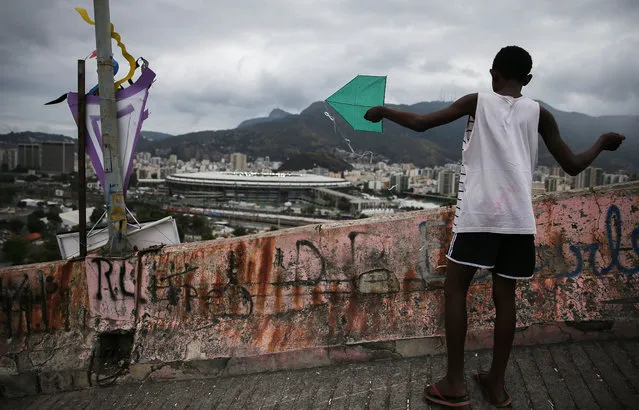
A teen prepares to fly a kite in the Mangueira “favela” community, with Maracana stadium in the background, on Day 5 of the Rio 2016 Olympic Games on August 10, 2016 in Rio de Janeiro, Brazil. Much of the Mangueira “favela” community sits about a kilometer away from Maracana stadium, the site of the opening and closing ceremonies for the Games. (Photo by Mario Tama/Getty Images)
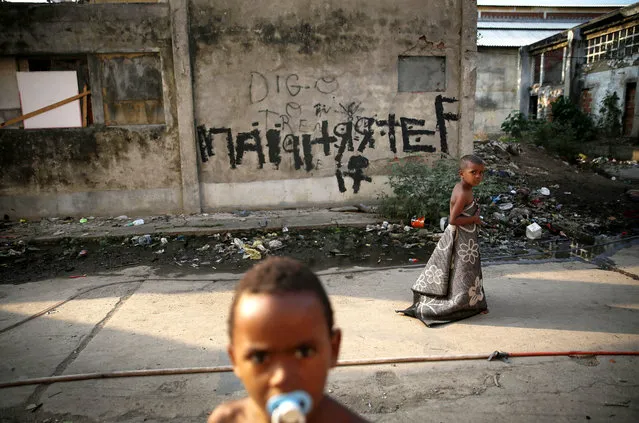
Kids walk and gather outside an occupied building in the Mangueira “favela” community on August 9, 2016 in Rio de Janeiro, Brazil. Hundreds of residents who live in the surrounding structures must collect water from hoses as there is no running water in the buildings. Residents often must burn trash due to a lack of public services. Much of the Mangueira “favela” community sits about a kilometer away from Maracana stadium, the site of the opening and closing ceremonies for the Rio 2016 Olympic Games. The stadium has received hundreds of millions of dollars in renovations ahead of the World Cup and Olympics. The Morar Carioca plan to urbanize Rio's favelas, or unplanned settlements, by 2020, was one key social legacy project heralded ahead of the Rio 2016 Olympic Games. The plan has mostly failed to materialize. Around 1.4 million residents, or approximately 22 percent of Rio's population, reside in favelas which often lack proper sanitation, health care, education and security due to gang and police violence. (Photo by Mario Tama/Getty Images)
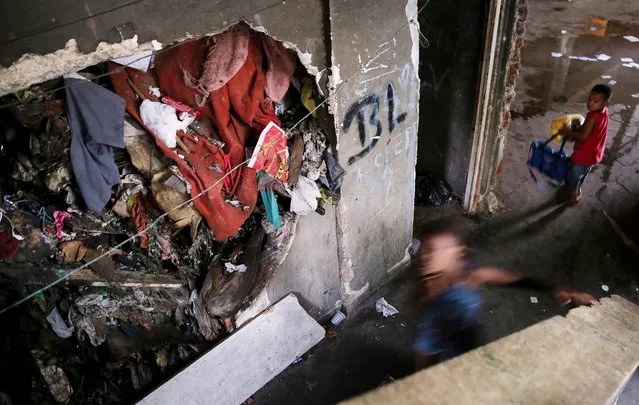
Youngsters gather in an occupied building in the Mangueira “favela” community, before the Brazil-Germany soccer final, on August 20, 2016 in Rio de Janeiro, Brazil. Hundreds of residents who live in the surrounding structures must collect water from hoses as there is no running water in the buildings. Much of the Mangueira “favela” community sits about a kilometer away from Maracana stadium, the site of the closing ceremonies and today's Brazil-Germany soccer match during the Rio 2016 Olympic Games. (Photo by Mario Tama/Getty Images)
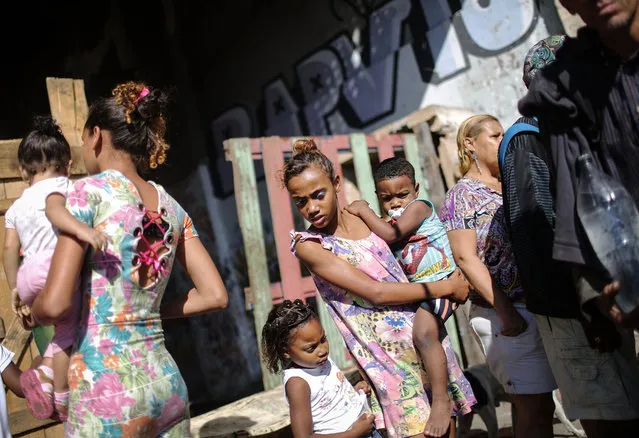
Residents gather for lunch donations outside an occupied building in the Mangueira “favela” community on August 13, 2016 in Rio de Janeiro, Brazil. (Photo by Mario Tama/Getty Images)
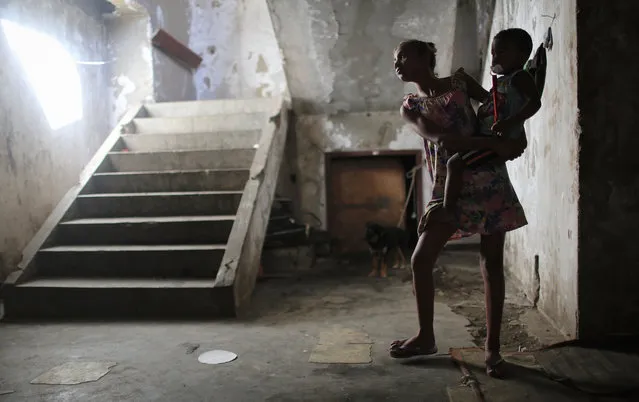
Resident Taina holds her brother Ysaque in the hallway outside their apartment in an occupied building in the Mangueira “favela” community on August 13, 2016 in Rio de Janeiro, Brazil. (Photo by Mario Tama/Getty Images)
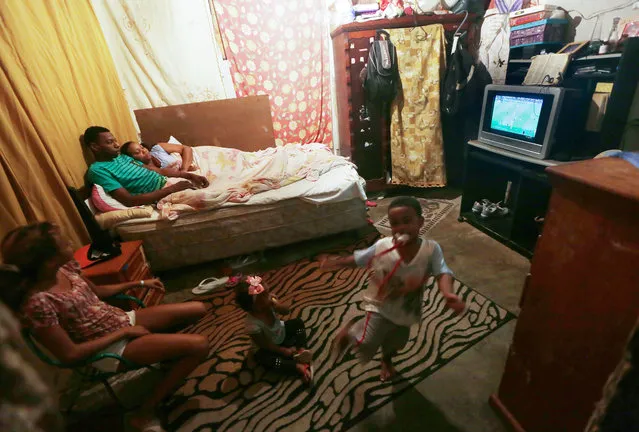
Brazilians gather and watch their team playing Germany in an occupied building in the Mangueira “favela” community on August 20, 2016 in Rio de Janeiro, Brazil. The “favela” is located about one kilometer from Maracana stadium, where the game was held. Yet most residents were not able to attend the match due to high ticket prices. Brazil won their first gold medal in soccer and avenged their humiliating 7-1 loss to Germany in the 2014 World Cup. (Photo by Mario Tama/Getty Images)
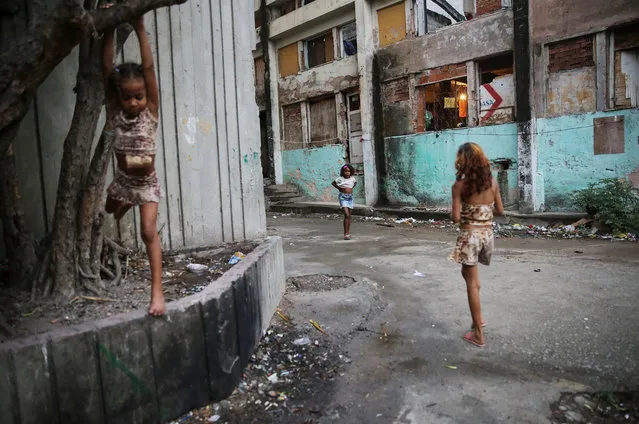
Young residents gather outside an occupied building in the Mangueira “favela” community, before the Brazil-Germany soccer final, on August 20, 2016 in Rio de Janeiro, Brazil. (Photo by Mario Tama/Getty Images)
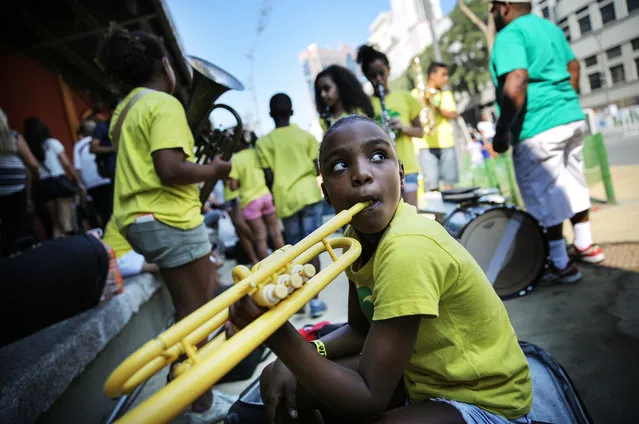
Kids from the band Favela Brass, who hail from the Pereira da Silva “favela” community, wait to perform for Olympic tourists and others along Olympic Boulevard on August 17, 2016 in Rio de Janeiro, Brazil. Around 40 students are part of the project which provides free music and English lessons to children from the “favela” community. The band is playing on the Olympic Boulevard with donated instruments most days during the Olympics. (Photo by Mario Tama/Getty Images)
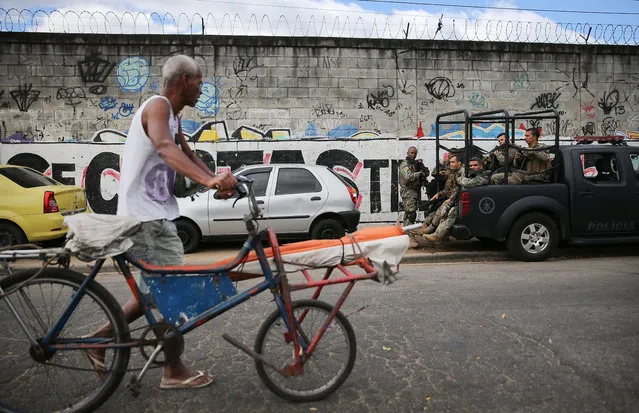
A man walks with a bike along the edge of the Mare “favela” community complex during an operation after National Force soldiers protecting Rio's Olympic Games were shot yesterday on August 11, 2016 in Rio de Janeiro, Brazil. Three soldiers were fired upon after taking a wrong turn into the complex with one being shot in the head. (Photo by Mario Tama/Getty Images)
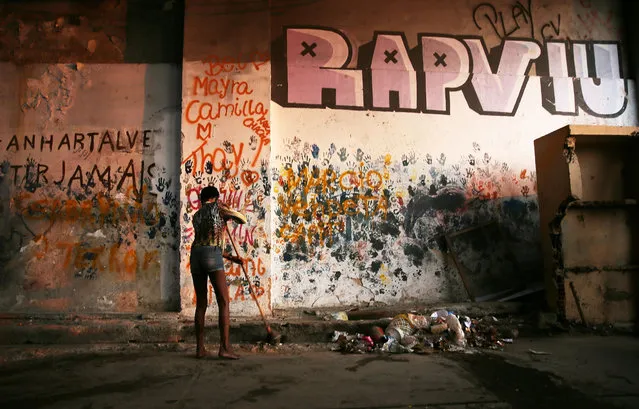
A woman sweeps outside an occupied building in the Mangueira “favela” community on August 9, 2016 in Rio de Janeiro, Brazil. (Photo by Mario Tama/Getty Images)
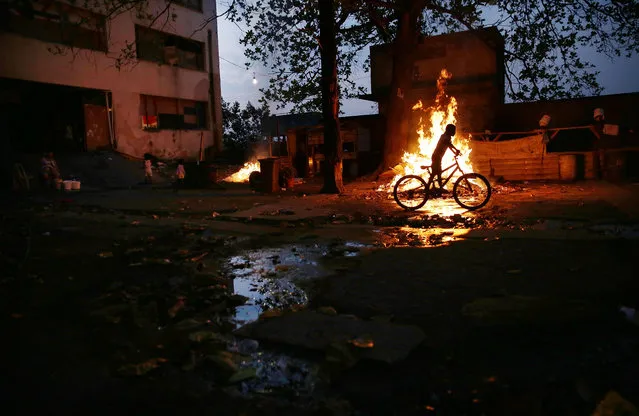
A boy rides a bike past a trash fire outside an occupied building in the Mangueira “favela” community on August 9, 2016 in Rio de Janeiro, Brazil. (Photo by Mario Tama/Getty Images)
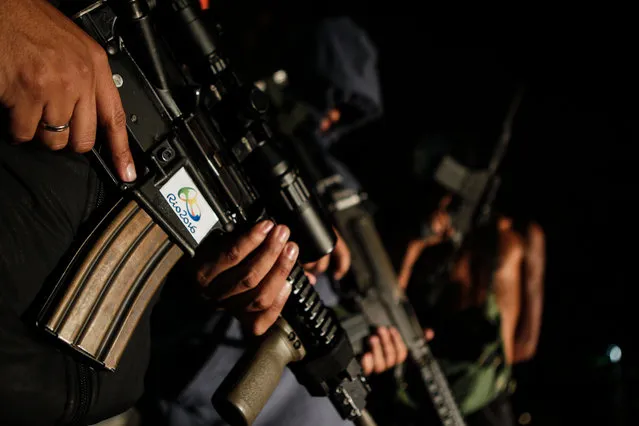
Young men presenting themselves as drug traffickers pose with assault rifles decorated with a Rio 2016 sticker in a favela of Rio de Janeiro late August 20,2016, a night before the end of the Olympic Games. Security worries have never been far away of the Rio 2016 Olympic Games in a city known for its violent crime. (Photo by Diego Herculano/AFP Photo)
22 Aug 2016 12:18:00,
post received
0 comments
